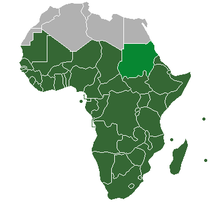12 December 2019

This figure equates to an average increase in GDP of US$41 per person and factors in a 17% rise in total household savings (US$31bn).
A study by independent global advisory firm Oxford Economics, The YES Economy: Giving the world financial identity, also identified Nigeria (US$7bn GDP uplift), Côte d'Ivoire and Madagascar (both US$3bn uplift), as the stand-out markets for this growth.
The global report was authored by Oxford Economics, on behalf of Juvo, which claims to be the pioneer of financial identity as a service (FiDaaS) technology.
FiDaaS technology analyses alternative data using machine learning to build financial identities, allowing billions of unbanked and underbanked consumers to qualify for financial services, often for the first time.
Oxford Economics said it devised a FiDaaS-enabled scenario to reflect a world in which mobile telecom operators have created a unique financial identity and credit score for their unbanked customers, allowing the provision of financial services to those that lack a credit history.
"Mobile operators extend low-cost, low risk offers to their customers, such as airtime loans. Based on payback behaviour, consumers gradually build up to larger transactions: and then access other financial services, via partnerships between operators, financial service providers and merchants," it said in a statement.
Steve Polsky, chief executive officer and founder of Juvo, said,"Establishing financial identities through mobile network operators could have profound implications for governments, financial institutions, and for the millions of unbanked (and underbanked) individuals around the world. For governments, it represents a massive boost to economic development and progress. For financial institutions and the mobile telecom operators they partner with, it represents a multi-billion-dollar revenue opportunity. And for the unbanked, it opens up fair and equal access to useful financial services that wouldn't otherwise be available to them."







